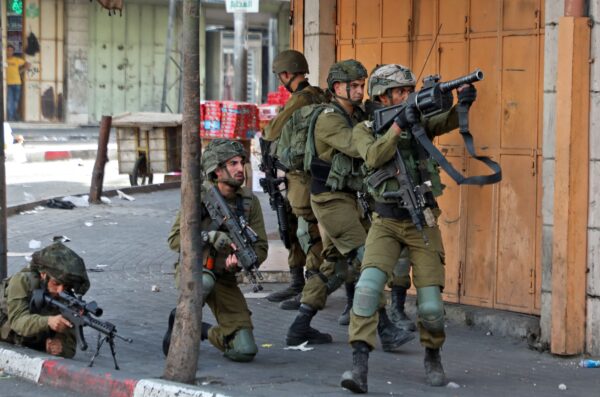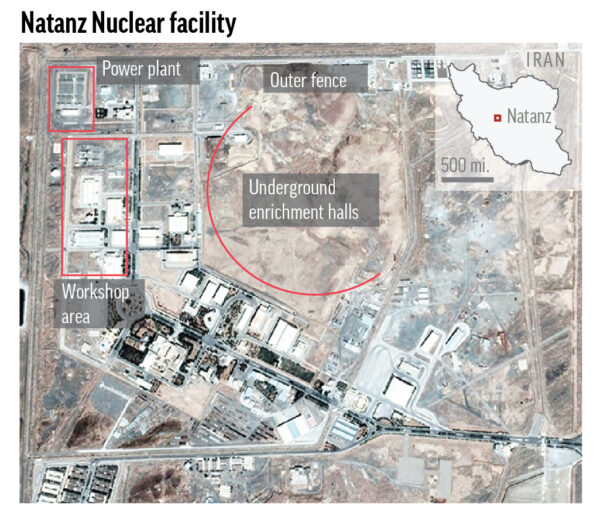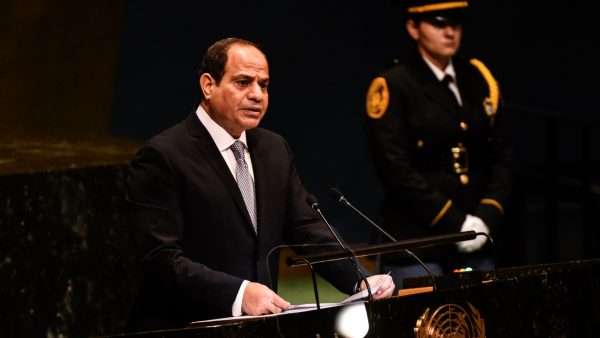On the second day of a three-day Middle East tour, U.S. Secretary of State Antony Blinken on Jan. 30 repeated calls for a “two-state” solution to the perennial Israel–Palestine conflict.
Blinken made the appeal amid steadily escalating Israeli–Palestinian violence that in recent days has claimed more than a dozen lives.
At a joint press conference with Israeli Prime Minister Benjamin Netanyahu, Blinken expressed Washington’s hope of seeing “freedom and security” in “equal measure” for Israelis and Palestinians alike.

President Joe Biden, he said, “remains fully committed to that goal. And we believe the best way to achieve it is through preserving—then realizing—the vision of two states [Israel and Palestine].”
Blinken added: “Anything that moves us away from that vision is, in our judgment, detrimental to Israel’s long-term security and its long-term identity as a Jewish and democratic state.”
Drawn up late last year, Netanyahu’s coalition government includes parties vehemently opposed to Palestinian statehood.
Mounting Violence
Blinken’s ongoing tour of the region follows a series of particularly violent episodes in recent days between Israelis and Palestinians.
On Jan. 26, 10 Palestinians were killed during an Israeli raid in the West Bank city of Jenin. The following day, a Palestinian gunman killed seven Israelis in Jerusalem.
According to Palestinian officials, at least 35 Palestinians, including militants and civilians, have been killed in violence since Jan. 1.
Hours before Blinken’s arrival, a Palestinian man was shot dead by Israeli soldiers in the West Bank. Israeli officials say soldiers opened fire after the man rammed his vehicle into an army checkpoint.
The Epoch Times was unable to verify assertions by either side.
After holding closed-door discussions with Netanyahu, Blinken called on both sides to take “urgent steps to restore calm and de-escalate.”
U.S.-backed talks between Israel and the Palestinian Authority ended in 2014 after Israel launched a massive assault on the Gaza Strip. More than 2,000 Palestinians—and scores of Israelis—were killed during the six-week conflict.
Blinken is scheduled to visit the West Bank city of Ramallah on Jan. 31 for the last leg of his tour, where he is slated to meet Palestinian Authority President Mahmoud Abbas.

Iran in Crosshairs
Speaking alongside Netanyahu, Blinken also stressed Washington’s continued commitment to Israel’s security.
“In the context of escalating violence,” Blinken said, “it’s important that the government and people of Israel know that America’s commitment to their security remains ironclad.”
Netanyahu likewise extolled the close relationship between the United States and Israel, which he described as “unbreakable” and “one of the great alliances of modern history.”
He also used the occasion to denounce Iran, emphasizing Israel’s longstanding policy of “doing everything in its power to prevent Iran from acquiring nuclear weapons and the means to deliver them.”
Blinken agreed, saying that Tehran “must never be allowed to acquire a nuclear weapon.”
Blinken added that, during their meeting, he and Netanyahu had discussed “deepening cooperation to confront and counter Iran’s destabilizing activities in the region and beyond.”
In the early hours of Jan. 29, drones of unknown origin attacked a military facility near the Iranian city of Isfahan. While reportedly causing limited damage, the attack didn’t result in any casualties.
Despite widespread speculation of Israeli involvement, its officials have so far refrained from commenting on the incident.
Brig. Gen. Patrick Ryder, a Pentagon spokesman, said no U.S. military assets were involved in the attack but declined to comment further.

Blinken Meets el-Sisi in Cairo
Earlier the same day, Blinken also held talks with Egyptian President Abdel-Fattah el-Sisi in Cairo.
At a closed-door meeting, the two men reaffirmed their countries’ “strong commitment” to the “U.S.-Egypt strategic partnership,” according to a statement released afterward by the State Department.
Blinken also reportedly commended el-Sisi for Egypt’s “ongoing efforts to de-escalate tensions between Israelis and Palestinians.”
Cairo became the first Arab capital to make peace with Israel in 1979. Since then, Egypt—a major recipient of U.S. military aid—has sought to mediate between Israel and the Ramallah-based Palestinian Authority.
Blinken’s talks with el-Sisi also covered regional issues, including Sudanese efforts to form a civilian government and the need for elections in next-door Libya, which remains torn between rival factions.
Egypt’s Rights Record Raises Concern
Before leaving Cairo, Blinken also held talks with Egyptian Foreign Minister Sameh Shoukry.
During a joint press conference with the latter, Blinken said Washington would continue to press Cairo to release thousands of jailed political dissidents.
“The concerns that we have [about political prisoners] remain,” Blinken told reporters. “In the spirit of candor … we expressed those concerns [to el-Sisi and Shoukri] very clearly.”
El-Sisi, a former army chief, came to power in a 2013 military coup that swept his predecessor, Mohamed Morsi, from power.
Morsi, the country’s first freely elected president and a leader of Egypt’s now-banned Muslim Brotherhood, died in prison in 2019.
The 2013 coup was followed by a sweeping crackdown on political dissent that targeted members of Morsi’s Muslim Brotherhood and secular critics of el-Sisi’s government.
According to rights groups, tens of thousands of political prisoners remain behind bars. The government, for its part, says the detentions are necessary to ensure Egypt’s political and economic stability.
From The Epoch Times

